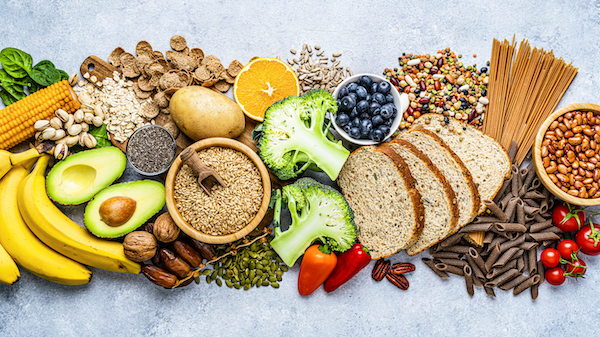These days, it seems there’s a mindful way to do nearly everything – from mindful meditation to mindfully watching reality TV. It is definitely one of the biggest health trends around.

In case you haven’t heard, here’s the scoop: mindfulness is a mental practice in which you are fully present and aware of yourself and your surroundings, without giving much energy or concern to the noise and activity around you. Practicing inward awareness – being in tune with both your physical body and emotional state while peacefully observing the present moment – offers so many benefits, including reduced stress, enhanced cognitive performance and increased awareness of others’ well-being.
If practicing mindfulness can drastically improve every other aspect of our daily lives, it’s only natural that it would have the same effect on how you eat. After all, mealtime is one of the most fundamental elements of the human experience.
How to start eating mindfully
Here are my favorite tips for your first mindful meal:
1. Unplug. For starters, turn off and stow all of those electronic gadgets – far away. Shut down the devices to get back in touch with yourself and your surroundings.
2. Breathe. Conscious breathing realigns your body and calms the central nervous system, instantly dissolving stress and anxiety. Breath work also keeps us grounded and focused on the present moment, which is the backbone of any mindfulness practice. The breath acts as a supportive anchor to quickly pull you back to center if you start panicking about your to-do list in the middle of your meal. If all else fails, just keep breathing.
3. Appreciate. Gratitude has a wonderfully purifying effect under any circumstances, but especially when it comes to the food on your table. Appreciate the wholesome meal you’ve created (and/or purchased) and the beneficial nutrients it provides. Cultivating gratitude and appreciation for the privilege of good health is the best way I know to gain respect for your food and honor your body.
4. Chew! The experts say we ought to be chewing every bite up to 30 times before swallowing. I know what you’re thinking: nobody has time for that. Yet inhaling every meal leads to digestive issues like heartburn, constipation, indigestion, headache and low energy. So instead of counting chomps, focus on thoroughly chewing each mouthful. This will release the enzymes that will metabolize your food, reduce esophageal stress and stimulate nutrient absorption. Digestive enzymes also help to break down each bite so that your body can convert your food into energy. In case that’s not reason enough: chewing thoroughly makes you feel full faster, preventing unnecessary weight gain caused by overeating.
Mindful meals offer a rare opportunity to do nothing more than chew, think and observe the world around you – free from distraction, invasive e-mails and chatty coworkers. This sacred time can be both restorative and insightful, and it gives you time to check in with your body.
For example, people often find that mindful eating leads to the discovery of food allergies and sensitivities. When you finally have the presence of mind to notice the subtle messages your body transmits, you can begin to recognize the foods that trigger an allergic response – and then adjust your diet accordingly. These kinds of lifestyle modifications will unburden the immune system and improve your well-being in the long run.
Benefits of mindful eating
Even if you only remember to practice mindful eating 50% of the time, your body and mind will still reap the rewards. Other benefits of mindful eating that I’ve discovered include:
- Weight loss: When you’re in tune with your body, you’ll develop more awareness of your own satiety. This means you’ll stop eating when you’re full, preventing unnecessary weight gain caused by excessive or emotional eating.
- Managing your emotions: Making mealtimes sacred can have a transformative effect on your relationship with food. A mindfulness practice provides an entire toolbox of coping mechanisms, like conscious breath work, that can help you manage your emotions in a healthy way – instead of using food to escape from your feelings.
- Nutrient absorption: When you take the time to chew your food properly, the body releases certain enzymes that aid digestion and increase nutrient absorption, so you’re getting the maximum number of benefits from your meal.
- Awareness of healthy habits: When you take part in the process of cooking a meal from beginning to end, you can’t help but appreciate the gift of wholesome ingredients. This means that you’re more likely to choose the healthy, nutrient-dense whole foods that your body craves the next time you go to the grocery store, which will have a positive and lasting impact on your well-being.
One of my favorite quotes is from Thich Nhat Hanh, a global peace activist and an early pioneer of mindful eating. He says, “When practiced to the fullest, mindful eating turns a simple meal into a spiritual experience, giving us a deep appreciation of all that went into the meal’s creation as well as a deep understanding of the relationship between the food on our table, our own health and the planet’s health.”
I couldn’t agree more!










